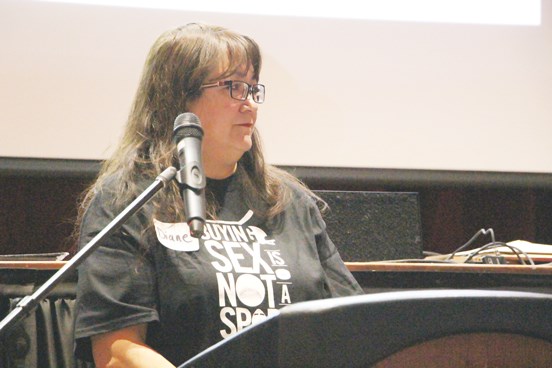Residential schools and the ‘60s Scoop are two things that have caused a wound among First Nations people in Canada. Yorkton Tribal Council’s Health and Social Development hosts a gathering annually to keep people informed about issues in the indigenous community and try to heal the wounds. The Indian Residential Schools Survivors Gathering was held at the Painted Hand Casino over two days, with the goal of giving them new information and helping them heal from that wound.
Iris Acoose, organizer of the event, said that the core of the event is recovering from the trauma that the residential schools caused to communities, families and individuals.
“The transmission of culture, there was a halt... The ‘60s Scoop, removing children. The Indian residential schools, removing children... We couldn’t look after our own selves, we couldn’t look after our own children, our ways were foreign, our ways were heathen, our ways were uncivilized. The removal of children was to supposedly ‘civilize, educate and Christianize’ the children. You take the children from the home, and they don’t have a relationship with their parents, they come back to the community and they’re no longer connected... Anyone who’s involved in the Indian residential schools and the ‘60s scoop had a major identity problem, had a major self-esteem problem, had major trauma. Just being removed from your home is trauma, being taken from your family is trauma. That’s not even talking about the things that happened,” said Acoose.
The goal of the event was to bring people together to meet, network and socialize, as well as gain some new knowledge and learn more about available resources.
“Sometimes, being with other people, and visiting with other people, there’s a healing element to that too. You run into people you went to the school with. You get talking about that, you get to remember things. You hear some things that were not so good, you hear some things that were good, the acknowledgement of things that weren’t so good and the acknowledgement of things that were good. I really think it’s an opportunity for people to come to terms with their own truth... I really believe that coming to truth is a huge factor in that healing process.”
Keynote speaker Elanor Sunchild from Sunchild Law spoke to attendees about the ‘60s Scoop, an effort similar to residential schools, adopting children out, including out of the country, and taking them out of indigenous communities.
It was not limited to the past, with current issues also being discussed at the event. A presentation on human trafficking connects to missing and murdered aboriginal women, for example, and Acoose says it’s connected to the same trauma that runs through communities.
“We want to get information out there that they can take back to their communities, so they can develop programs and make some change.”
The goal is to give people a lot of information, and a better understanding about what’s going on with the ‘60s Scoop class action suit, what is going on with reconciliation, and more information about what resources are available to them, Acoose explained.



